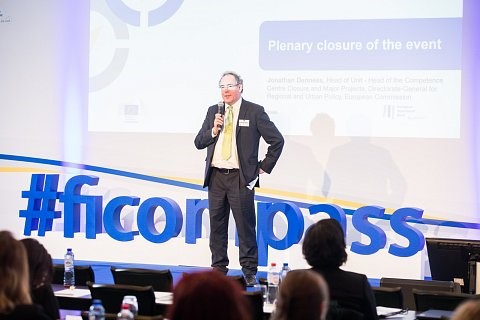Financial instruments: a smarter use of EU resources

Jonathan Denness, who became the Head of the Financial Instruments and International Financial Institutions Relations Unit at the Commission’s Directorate-General for Regional and Urban Policy (DG REGIO) in January 2019, spoke to fi-compass about the importance of financial instruments in complementing traditional Cohesion Policy delivery modes.
Why financial instruments and why use them in your Member State/region?
Financial instruments are a smart use of EU resources providing a more efficient and sustainable alternative to complement traditional grant-based support. In the 2021-2027 programming period, Cohesion Policy resources are planned to be scarcer. At the same time, we need to continue boosting economic growth and creating employment in Europe. Besides the obvious advantages of leveraging additional resources and recycling funds over the long term, the repayable nature of financial instruments offers incentives to better performance, including greater financial discipline at the level of supported projects. Finally, the reflows from these investments become resources at the disposal of national authorities that can subsequently be reinvested into further projects.
What is the status of implementation under the ERDF and CF?
At the beginning of 2018, the total programme amount committed to financial instruments was EUR 25 billion (European Regional Development Fund, Cohesion Fund, and national co-financing). This represents almost 7 % of the total allocation. The majority of financial instruments have already been set up and have started to support ERDF and CF resources through financial products, such as loans, guarantees, and equity, supporting projects on the ground. By January 2018, almost EUR 18 billion of the ERDF and CF have been channelled through financial instruments, which already exceeds the EUR 11.3 billion paid to final recipients via such instruments in the 2007-2013 period.
What is the purpose of fi-compass and how does it help?
The European Commission in partnership with the European Investment Bank established the fi-compass platform to offer advisory services on financial instruments under the European Structural and Investment Funds (ESIF). fi-compass is designed to support ESIF managing authorities and other practitioners by providing practical know-how and learning tools, including face-to-face training seminars and other events with ample networking opportunities.
In addition, we also organise our flagship ‘FI Campus’ event every year, whereby participants can create their own individual learning curricula, choosing from parallel sessions to suit their particular interests, such as case studies, workshops, discussion panels, and fund-specific sessions. We are now preparing this year’s event, which is likely to include a lot of new information about the 2021-2027 programming period.
Can you share any success stories?
One project case study from the ‘Revolving Investments in Cities’ project focuses on the Energiefonds Den Haag. This urban development fund was set up in 2013 in The Hague as part of the JESSICA initiative and has continued to grow during the current programming period. Its aim is the co-financing of energy projects integrated into sustainable urban development plans via loans, guarantees, and equity investments.
Financed from national and European financing sources, the current size of the fund is EUR 18.4 million. One of the success factors was the decision to start the fund as a pilot, with limited size initially. Other city funds could build on this experience by starting small scale and testing a given investment strategy with moderate financial commitments.

